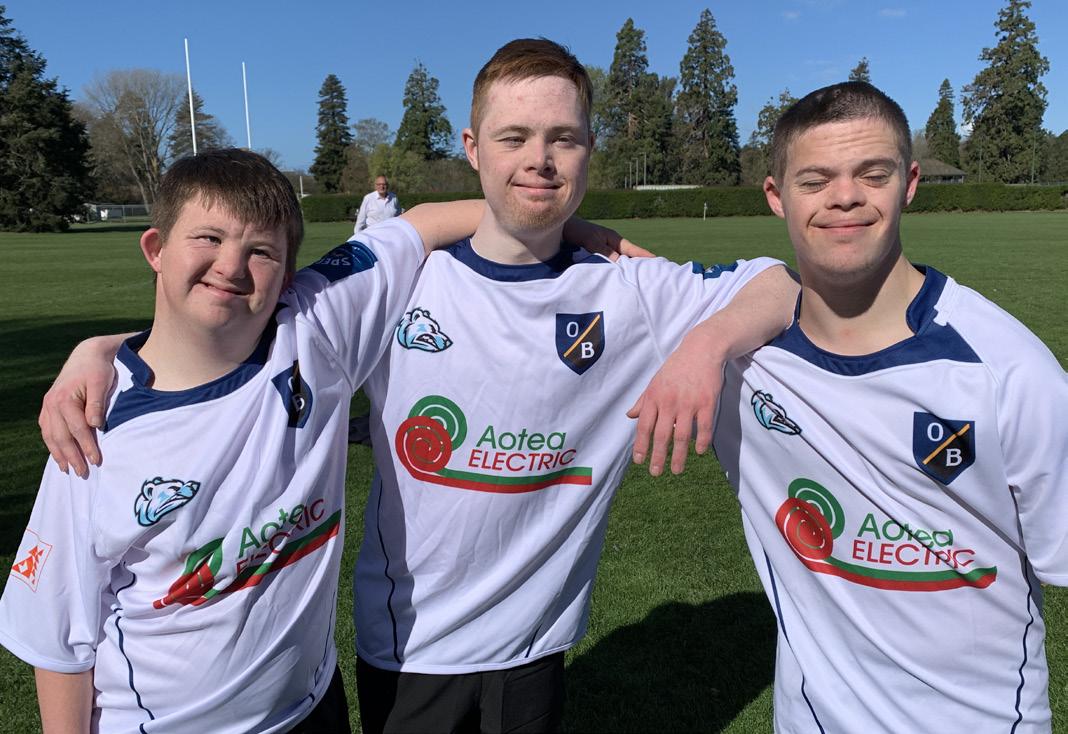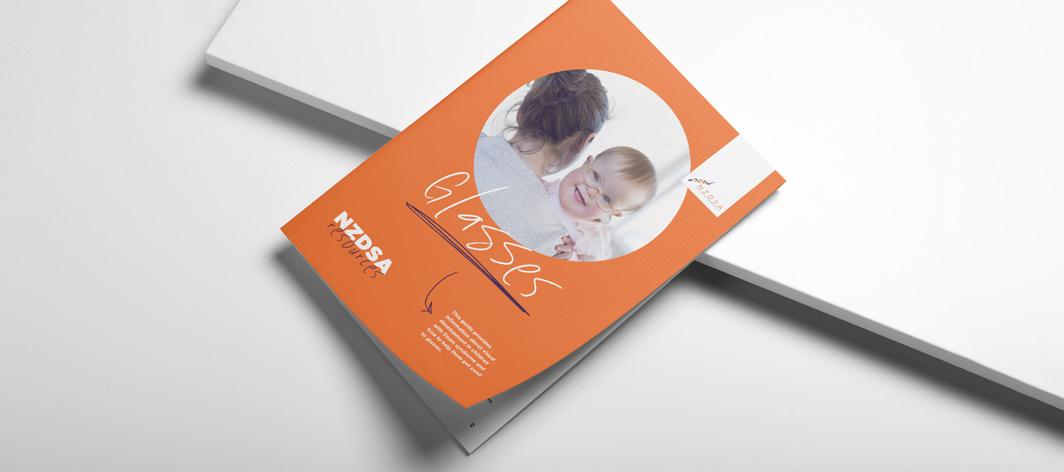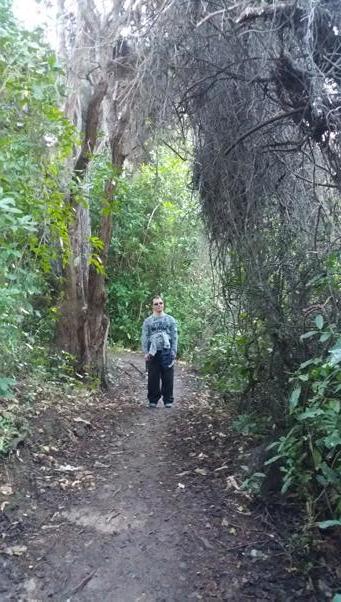
5 minute read
KEEPING OUR ATHLETES SAFE
Thames Valley Special Olympics athletes enjoying their Fun First day in June 2020

At the start of March, Special Olympics New Zealand (SONZ) was gearing up for the year’s much anticipated competition season. However, the COVID-19 crisis and resulting lockdown forced a halt to SONZ activity, leading to immense challenges for our athletes as their routines were disrupted and their connections to teammates restricted. For many athletes SONZ is a large and important part of their life. Athletes work to improve their physical health and gain important benefits to their self-esteem and confidence. Additionally, the social connections athletes foster through SONZ is huge. Athletes become very close to their fellow teammates and coaches, often socializing outside of their sports and forming lifelong friendships. Therefore, it was a big shock to the system when New Zealand went into lockdown and SONZ had to cease all activity. For our athletes this meant no training, no events and no seeing their teammates or coaches, which caused anxiety and stress. During this time, we worked to mitigate the stress
Waitakere Special Olympics athletes happy to be back to ten-pin bowling training in June 2020
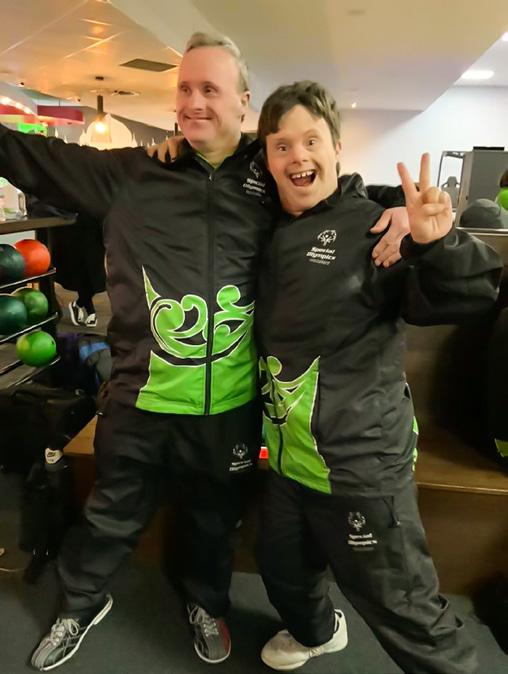
of isolation as much as possible by talking to our athletes regularly online and providing resources on staying fit, healthy and connected to friends. SONZ organisers and coaches stayed in touch with athletes through Facebook live events and through organising team Zoom calls. Exercise videos and tips on staying active were also promoted to our athletes. Additionally, athlete and health leaders, such as James Wilson and Scot Jackson, created positive content on staying healthy and keeping a strong mind, to keep everyone’s spirits up. When New Zealand returned to level 1 in June, we all relaxed as training started up again and our athletes began getting excited once again for the oncoming competitions in September. This made it particularly difficult for our athletes when we halted all activity again on the country’s move to level 2 and 3 in August, even as other sports resumed across New Zealand. Our athletes are part of a vulnerable community, where due to a host of reasons related to being medically underserved, people with intellectual disabilities suffer disproportionately
Contactless Thermometer use demonstrated at SONZ training
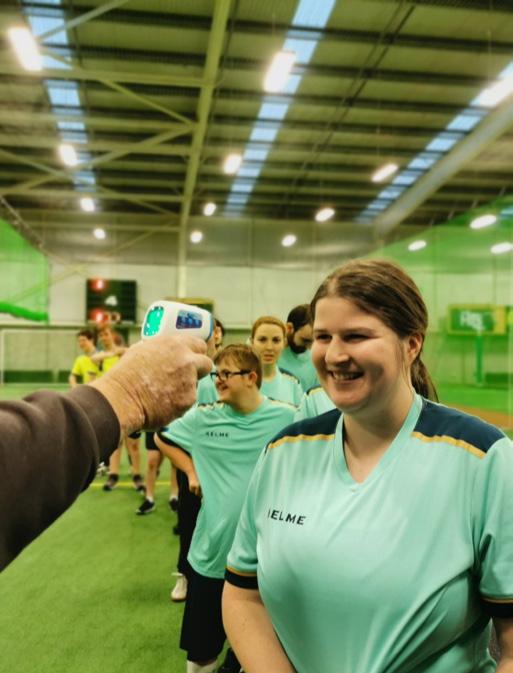
from preventable disease, chronic pain and autoimmune issues. Our goal is to protect our athletes as much as possible, which for us means no training or events unless there is no significant risk of COVID-19 community transmission within the region. As we continue to monitor Government recommendations and adjust our response accordingly, we have implemented hygiene and safety protocols for clubs who wish to return to training at Alert Level 2. This includes requiring coaches and volunteers to wear a face mask where possible, contact tracing, the use of contactless thermometers and hand hygiene protocols. Our full Alert Level protocols can be found at specialolympics.org.nz. Many of our athletes are highly goal-oriented, and the postponement of many of our competitions is leaving many feeling adrift and uncertain. As the situation continues to change and evolve we will continue to adapt in order to ensure that as many of our athletes as possible are able to train and attend events safely.
IHC library is full of good resources to help with anxiety. Here are just a few.
Something bad happened: a kid's guide to coping with events in the news. By Dawn Huebner
Summary: "[This book] guides children ages 6 to 12 and the adults who care for them through tough conversations about serious world events, from environmental threats to human tragedies. Care is taken to use the non-specific "bad thing" throughout, helping parents retain control over which events to talk about, and how much information to provide. Written by child psychologist Dr Dawn Huebner "Something Bad Happened" normalizes fear, sadness and worry about "bad things" while teaching coping skills to help children preserve feelings of safety, optimism and strength." - BOOK JACKET
All birds have anxiety. By Kathy Hoopmann
Summary: "Life as a bird can be stressful! From worrying about airplanes, windows and getting enough worms to eat, it is clear that birds can be anxious beings. Through a humorous, quizzical depiction of bird behaviour, this book validates everyday experiences of anxiety, provides an understanding of the associated symptoms and offers compassionate coping strategies." - BOOK JACKET
When my worries get too big: A Relaxation Book for Children Who Live with Anxiety. By Kari Dunn Buron
Worry and anxiety are on an upswing. In fact, anxiety is the most frequent of all mental disorders in children. High levels of stress and big emotions related to social situations, sensory issues, or general frustration are common in children who live with anxiety. Such stress can lead to a loss of control, resulting in aggressive behaviour, such as screaming, throwing things or even hurting someone. Prolonged anxiety can also seriously impact success in academic achievement and cause children to avoid social and extracurricular activities. Now with a special section on evidence-based teaching activities for parents and teachers alike, this bestselling children’s classic just became even better and more relevant. Engaging and easy to read, this illustrated children's book is filled with opportunities for children to participate in developing their own self-calming strategies. Children who use the simple strategies in this charming book, illustrated by the author, will find themselves relaxed and ready to focus on work or play!
Can I tell you about anxiety? : a guide for friends, family and professionals. By Lucy Willetts
Summary: "Meet Megan - a young girl who has an anxiety disorder. Megan invites readers to learn about anxiety from her perspective, helping them to understand why she sometimes feels anxious and how this affects how she thinks and behaves. Megan talks about techniques she has learnt to help manage her anxiety, and how people around her can help. With illustrations throughout, this will be an ideal way to explore feelings about anxiety, and how people around her can help. It shows family, friends and teachers how they can support someone who experiences anxiety and will be an excellent way to start a conversation about anxious thoughts, in the classroom or at home. Suitable for readers aged 7 upwards." - BOOK JACKET This book is a great introduction to anxiety for any age. It describes anxiety, it’s effects and what you can do about it in a friendly, non-scary way.
Please contact the library team (Phil, Ros, Ann and Michael) on 0800 442 442, email them at librarian@ihc.org.nz or visit the online catalogue at https://ihc.mykoha.co.nz/ You can watch their library video at https://www.youtube.com/ watch?v=AunmBYTIZTM


